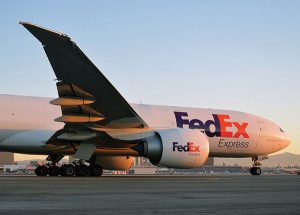Bloomberg
FedEx Corp’s profit warning this week hit a nerve with global markets already jittery over the state of the economy.
Shares of the delivery giant sank 21% last week, wiping out $11 billion in market value, and dragging the broader market to its worst week since June, as
the results fuelled concern of weaker e-commerce and business-to-business activity. Yet FedEx has made itself particularly vulnerable to a demand slowdown, due to its own idiosyncrasies and recent missteps.
“An investor mentioned to me — and I thought it was a good analogy — that FedEx has a weak immune system, and they’re usually the first ones to get sick,†said Bloomberg Intelligence analyst Lee Klaskow.
For all of FedEx’s warnings about macroeconomic challenges, the company has stumbled repeatedly in recent years after struggling to integrate a 2016 acquisition and as its own dueling networks increase costs. The revision is an early sign of trouble for new Chief Executive Officer Raj Subramaniam, who promised to boost sales and profit under a new three-year plan unveiled in June.
FedEx’s sudden swing stands in contrast to key rival UPS Inc, whose management earlier
this month reaffirmed their full-year financial targets, despite
the return of Covid-19 lockdowns in China and Europe’s
energy crisis. Although parcel demand is clearly slowing, FedEx’s performance “likely stands out to the downside versus UPS,†Citigroup analyst Christian Wetherbee said in a note, “as the company has been historically challenged in rapidly deteriorating freight markets.â€
FedEx’s Express unit was the largest contributor to the miss, with revenue coming in $500 million below the company’s expectations, which it blamed largely on economic weakness in Asia and service difficulties in Europe.
The challenges in Europe point to continued issues with FedEx’s integration of TNT Express, which the American company acquired in 2016 to better compete against UPS and Deutsche Post AG’s DHL, argues Klaskow.
“We were at least hoping to start seeing some fruits of their labor and the benefits of that acquisition to start transforming, whether it’s in share gain or better margins,†Klaskow said. “That clearly was not the case.â€
Profit margins at Express were 1.7% compared to 6% a year ago, the unit’s worst for a quarter since 2009, according Robert W Baird & Co.
Unlike UPS, FedEx also has to contend with the cost of operating two distinct delivery networks. FedEx Express uses company employees to handle overnight deliveries, while FedEx Ground relies on independent contractors who employ nonunion drivers to deliver parcels to homes.
FedEx has said it expects to be able to raise prices enough to exceed inflation over the next three years, but it’s unclear how the company will retain the pricing power it enjoyed during a boom in shipping that accompanied the pandemic.
 The Gulf Time Newspaper One of the finest business newspapers in the UAE brought to you by our professional writers and editors.
The Gulf Time Newspaper One of the finest business newspapers in the UAE brought to you by our professional writers and editors.
